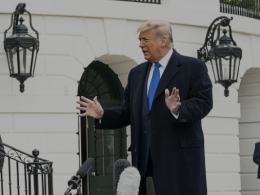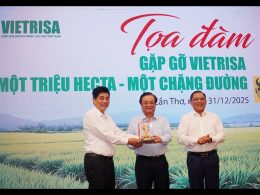A Singapore-led initiative to protect and restore marine and coastal ecosystems in South-east Asia, while generating tradeable carbon credits, was launched in New York on 24 September.
The programme, known as Blue Catalyst, will support early-stage companies developing technologies to map blue carbon habitats, monitor biodiversity, improve restoration outcomes and scale business models. It is backed by Singapore’s Economic Development Board (EDB), with the World Wide Fund for Nature (WWF) providing scientific expertise and Hatch Blue offering investment mentorship.
Over 12 months, selected firms will trial their solutions at live conservation sites in the region managed by WWF, which will also advise on blue carbon science and carbon markets. Hatch Blue will prepare start-ups for investment and help them scale commercially.
WWF-Singapore, Hatch Blue and the EDB signed the collaboration agreement during the North America Climate Summit, organised by the International Emissions Trading Association on the sidelines of New York Climate Week. Applications open in December.
Blue carbon refers to carbon stored in marine ecosystems such as mangroves, seagrasses and coastal wetlands, which are abundant in South-east Asia. These habitats can store more carbon per hectare than tropical forests, shield coastal communities from storms and support biodiversity. Yet they currently account for only 0.2% of credits available on the voluntary carbon market, partly due to technical difficulties in measuring carbon stocks and high failure rates in restoration projects.
Technological innovations under Blue Catalyst aim to address these barriers. Geospatial mapping tools and modelling software could improve carbon measurement, while nursery-based solutions could boost mangrove survival rates. If proven effective, they could attract investors, strengthen project viability and increase the availability of high-quality blue carbon credits.
“Blue carbon projects hold immense promise for the region, but challenges remain in implementation and measurement,” said Vivek Kumar, chief executive of WWF-Singapore. Wayne Murphy, co-founder of Hatch Blue, added: “This partnership will pave the way for viable solutions at scale and raise the quantity of high-quality blue carbon credits.”
Singapore sees carbon markets as central to achieving net zero by 2050. EDB executive vice-president Lim Wey-Len said the initiative would help address current gaps in project development, while strengthening Singapore’s position as a carbon services hub for Asia-Pacific.
The Republic is already contracting nature-based credits from projects in Ghana, Paraguay and Peru, and will issue a fresh request for proposals in late 2025. Officials say such markets are not only essential for climate cooperation but also provide opportunities to create new jobs in sustainability reporting, verification and carbon finance.
















